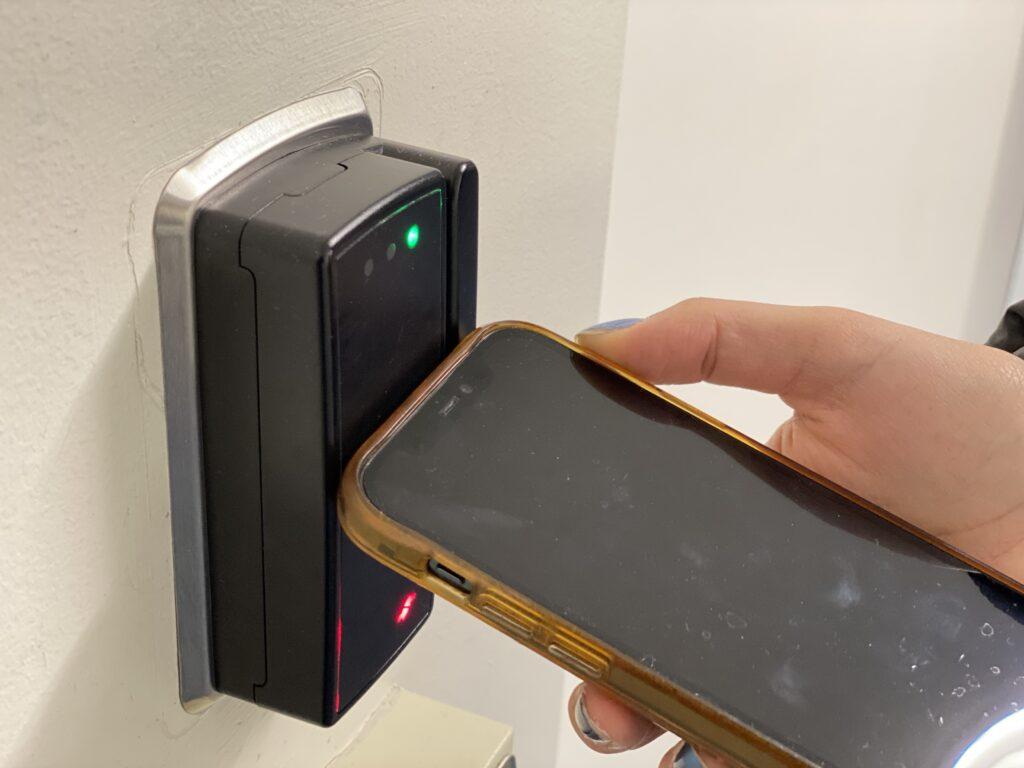Student leaders passed a resolution demanding extended student access times to various campus buildings.
The Georgetown University Student Association (GUSA) resolution, which passed at a Senate meeting Jan. 23, calls for the university to extend the hours students can access residential buildings with their GoCards — ID cards provided to students, faculty and staff — to 24 hours a day. Current university policy limits student access to only their own residential buildings after 12 a.m. The resolution also calls for extended GoCard access to the Leavey Center, Regents Hall, the Rafik B. Hariri Building and the Intercultural Center until 3 a.m.

Student access to all campus buildings late at night will increase campus security, according to GUSA Senator Sanjana Ranganathan (SFS ’25), who introduced the resolution at the meeting.
“In light of recent security concerns over last semester, the goal is that students can easily access any building for safety at any time of night,” Ranganathan wrote. “In addition, from a convenience standpoint, access to the aforementioned buildings will increase late-night studying options for students.”
Multiple intrusions into student residence halls have sparked safety concerns among students. At approximately 1 a.m. on Sept. 19, an intruder armed with a knife gained entry into New South Hall, a first-year dormitory In response to the intrusions, the university has increased security in affected residence halls by stationing student guards in halls and increasing the patrol of the Georgetown University Police Department (GUPD).
Limiting access to residential buildings ensures the safety of students, according to a university spokesperson.
“The restricted hours for residential buildings are rooted in safety and are meant to ensure that only residents of each building have access during times when our community is typically sleeping and studying,” the spokesperson wrote in an email to The Hoya.
Allowing students 24/7 access to all residential buildings would increase the risk of sexual misconduct, according to GUSA Senate Vice Speaker Rowlie Flores (COL ’22), who cast the sole vote against the resolution.
“While I support extended access to places where students study such as Hariri, I am worried about giving all undergraduates access to residential dorms,” Flores wrote to The Hoya. “I look back to our campus climate survey, which found that 31.6% of women and 11.6% of men reported experiencing nonconsensual sexual contact since entering college. Without in-person bystander training for the Class of 2024 and Class of 2025, supporting this legislation seemed reckless.”
COVID-19 related delays in mandatory in-person bystander training for first-years and sophomores, which usually take place in the first weeks of the fall semester, have prompted concerns among students and faculty about the dangers of insufficient education.
Flores said students have access to other services on campus that can provide safety in a time of need.
“There are other avenues that could be used such as calling an RA-on-duty or GERMS, other students that are trained in dealing with emergencies,” Flores wrote.
Extended access to residence halls may increase the presence of GUPD on campus, according to Flores.
In the past, students have voiced concerns about GUPD’s presence on campus as students of color reported being hyperpoliced. Last fall, GUSA members launched the Georgetown University Police Department Abolition Working Group to abolish the presence of the university police on campus.
Students concerned about dorm safety should attend GUPD safety talks and be involved in the conversations between GUSA and the administration, according to Ranganathan.
“I encourage any interested students to attend the safety talks led by GUPD where they encourage student comment on security issues,” Ranganathan wrote. “I also encourage any interested students to get involved with GUSA, either by attending and contributing at Senate meetings or joining on the Executive side to further advocacy.”
Part of the push for increased access will include advocacy to the university for more in person student training, according to Ranganathan.
“As part of the implementation we will definitely be pushing the University to implement in-person training for sophomores and freshmen,” Ranganathan wrote. “While all students have taken the online module, due to COVID the in-person supplemental discussion was canceled. So we will definitely be pushing to conduct that again.”














